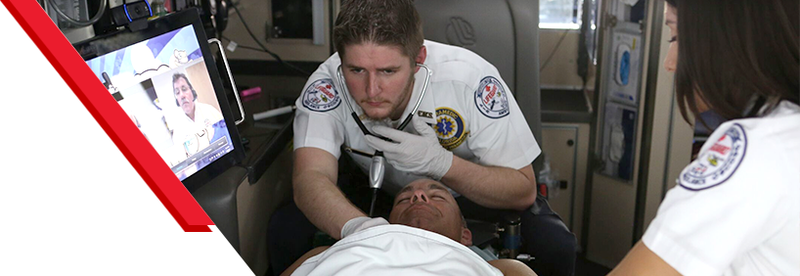
In light of healthcare’s increasing cost and complexity, Lifeguard is pleased to offer mobile integrated healthcare options as a strategy for delivering education and proactive care. By coordinating with community health providers, Lifeguard develops customized programs, protocols and procedures that identify the need for preemptive care and outreach solutions. As part of our mobile integrated healthcare platform, qualified patients may receive basic evaluations and treatment in the privacy and comfort of their homes. Lifeguard hopes these groundbreaking programs will help solve some of our nation’s healthcare delivery challenges by increasing access to high-quality healthcare for all, especially benefiting disabled or homebound patients in rural communities.
Certain medical conditions are accompanied by average readmission rates approaching or exceeding 20%. Patients may face a greater risk of readmission when discharge instructions are not strictly followed, particularly when the diagnoses are: congestive heart failure, acute myocardial infarction, hip and knee fractures, pneumonia and chronic obstructive pulmonary disease (COPD). These hospital readmissions result in declining patient health, prolonged recovery time and government-imposed penalties on the health system. Lifeguard’s mobile integrated healthcare platform provides a means to mitigate readmission rates, while improving the overall health of the community.
Telemedicine
Another valuable component of mobile integrated healthcare is our ability to coordinate the skills of a paramedic combined with the technology of telemedicine to evaluate and treat patients in their homes. When a patient or caregiver is unsure if a patient’s symptoms warrant an emergency room visit, our paramedics can evaluate these symptoms and the situation on-site and teleconference directly with a physician for further examination. The telemedicine technology provides a physician virtual access to the patient during the paramedic exam using webcams, on-board microphones and a specialized stethoscope.
The following information regarding the Aviation Consumer Protection Division is provided to comply with 49 U.S.C. Section 42302. The DOT Aviation Consumer Protection Division’s contact information is as follows:
Aviation Consumer Protection Division, C-75
U.S. Department of Transportation, 1200 New Jersey Avenue, SE. Washington, DC 20590
202-366-2220 (TTY 202-336-0511), 1-866-TELL-FAA (1-866-835-5322)